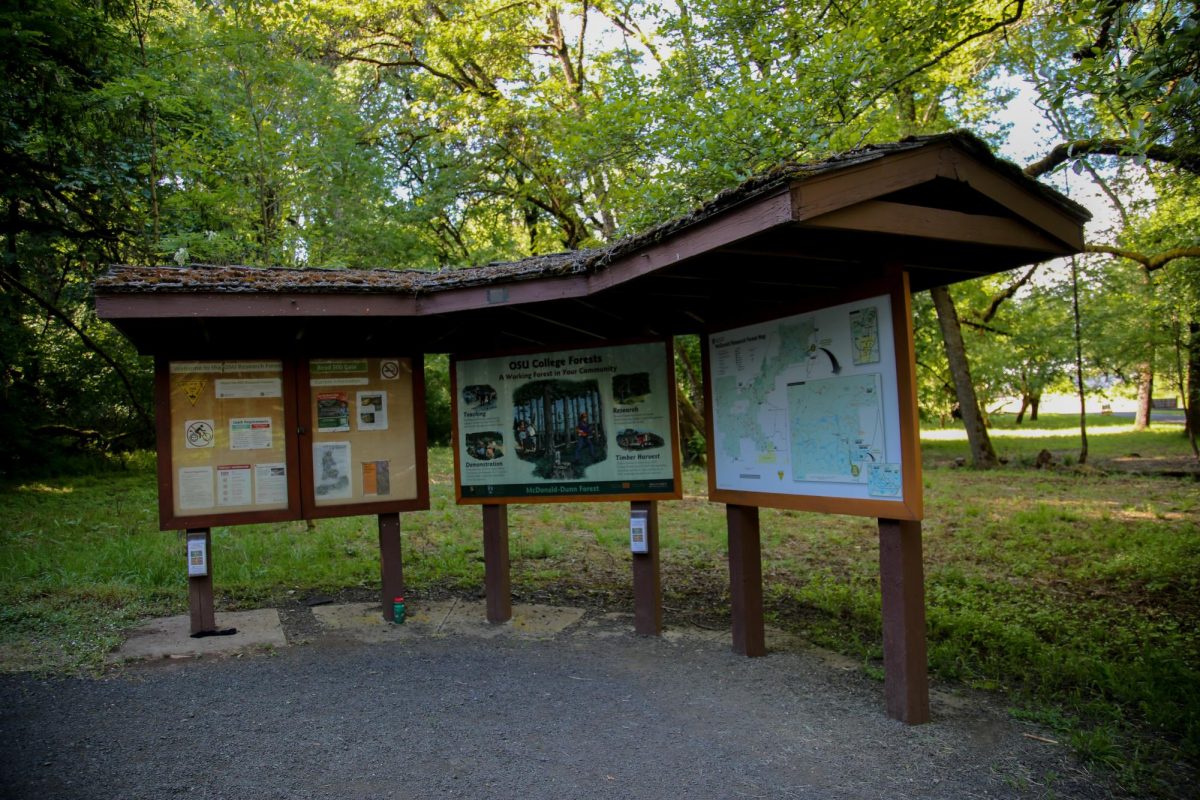Correction: This article has been corrected from the original to note that the Tualatin Mountain Research Forest has not yet been acquired by the University.
Oregon State University will potentially acquire a 3,111 acre research forest in Multnomah County’s Tualatin Mountains, said a recent press release from the Office of Oregon Sen. Jeff Merkley.
The “Tualatin Mountain Forest Project” received $3.63 million in funding for the project from the Land and Water Conservation Fund through the United States Department of Agriculture Forest Legacy Program, the press release said.
According to Holly Ober, the associate dean of extension and outreach, the acquisition of the Tualatin Mountain Forest is being supported by the Trust for Public Land, a non-profit dedicated to creating outdoor spaces and protecting public lands.
If the acquisition goes through, the Tualatin Mountain Forest would be the 10th research forest owned and operated by OSU’s College of Forestry. It will also be the only forest close to a major urban area, which will allow the college to branch out to a broader audience, Ober said.

Parker Turk, a master’s student studying sustainable forest management with a focus on forest operations planning, said acquiring this forest would present an opportunity to study the wildland urban interface, the crossroads of urban and rural areas.
“The wildland urban interface is a really important thing that we need to study, both for managing watersheds, for providing things like beautiful hiking areas and other non-cash values to the community surrounding them,” Turk said.
Ober said that the College of Forestry would manage the forest for multiple uses including education and recreation. According to the press release, the forest would open up 24 miles of trails to the public for biking and hiking.
Dylan Chatard, an undergraduate student in forest management with a minor in wildland fire and restoration lives in Portland and said that he thinks Portlanders would be excited by the nearby recreational options.
The Tualatin Mountain Forest would be one of the larger research forests owned by OSU, and was recently replanted with young trees, which Ober said presents unique research opportunities.
“Having this forest … it’s almost like a blank slate that we can start doing all sorts of education and research (on),” Ober said.
Turk added that the monoculture would also allow for more controlled experimentation, and provides consistent starting conditions across all experimental sites.
Chatard said that he would hope to see research being done on carbon capture in the forest, focused on the carbon sequestering abilities of young trees.
The bottom line, according to Turk, is that the potential of a new research forest is exciting since it would provide more space to do more science.
“We’re always looking for new and interesting places to conduct research, and we’re always thirsting for the next piece of knowledge that will help us inform more disciplined management practices into the future,” Turk said.














































































































